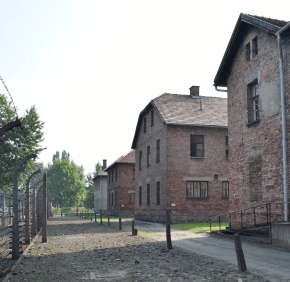There is one thing, however, that is different about this place.

So many things done by Nazi soldiers with incredible skill and ease – as if it were second nature to them. Actions and thoughts that showed that the only end in the minds of these men was extinction.
Today, we know that nothing can truly get in the way of that supreme good – the dignity of the human person. For it is not about how useful one is to society, but it’s about one’s worth – for we are made in the image and likeness of God.

See also:
Largest ever tour of St. Maximilian Kolbe’s relics begins in Archdiocese of Baltimore


